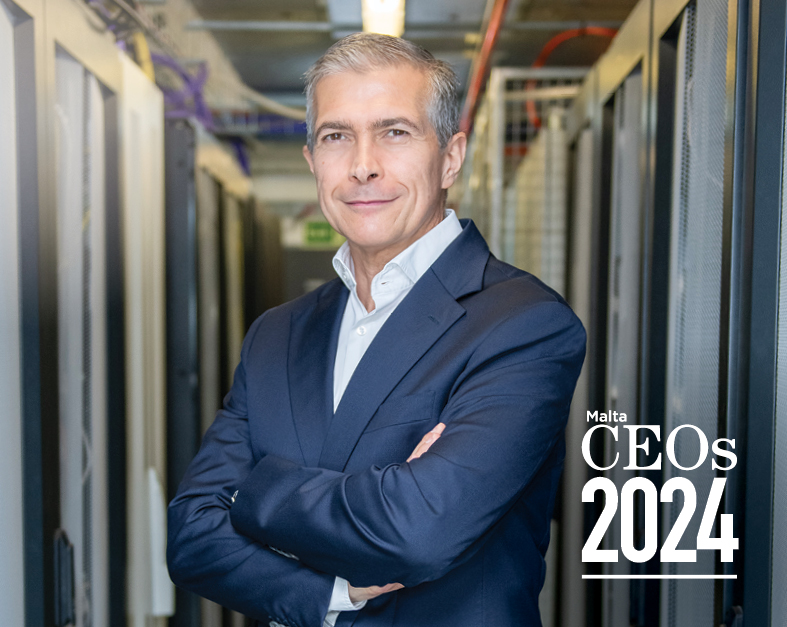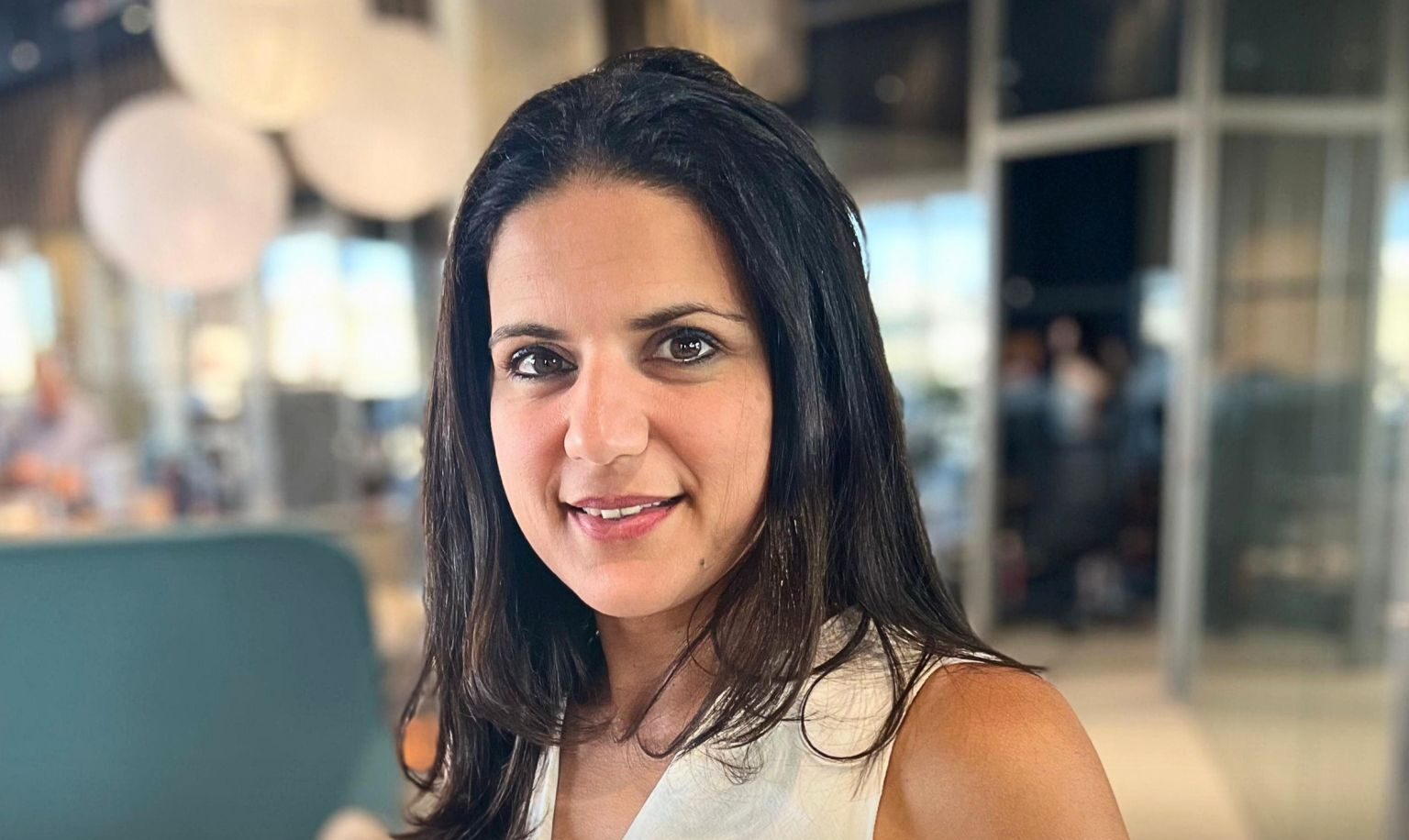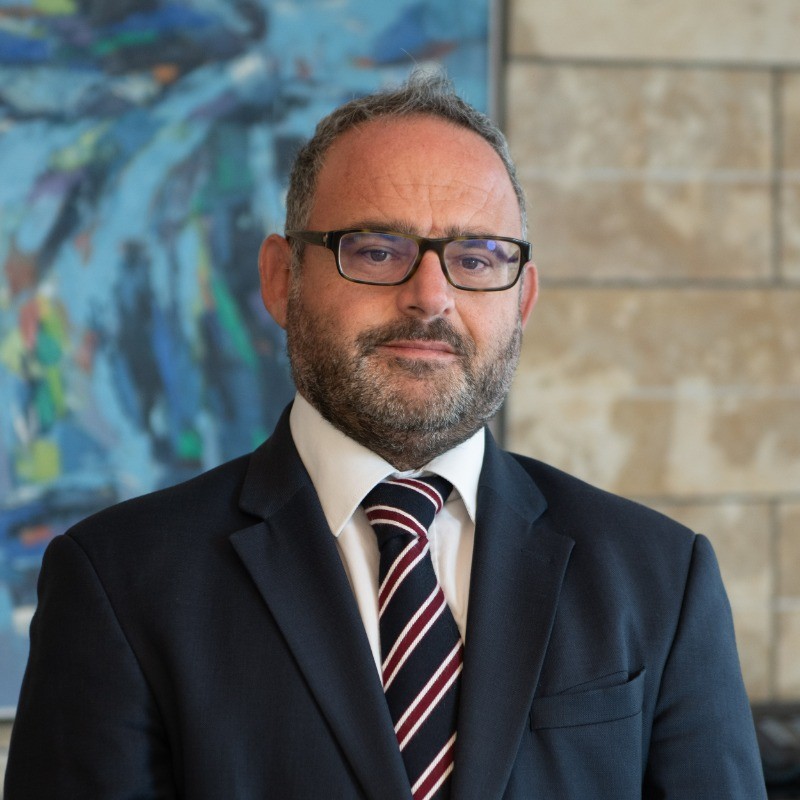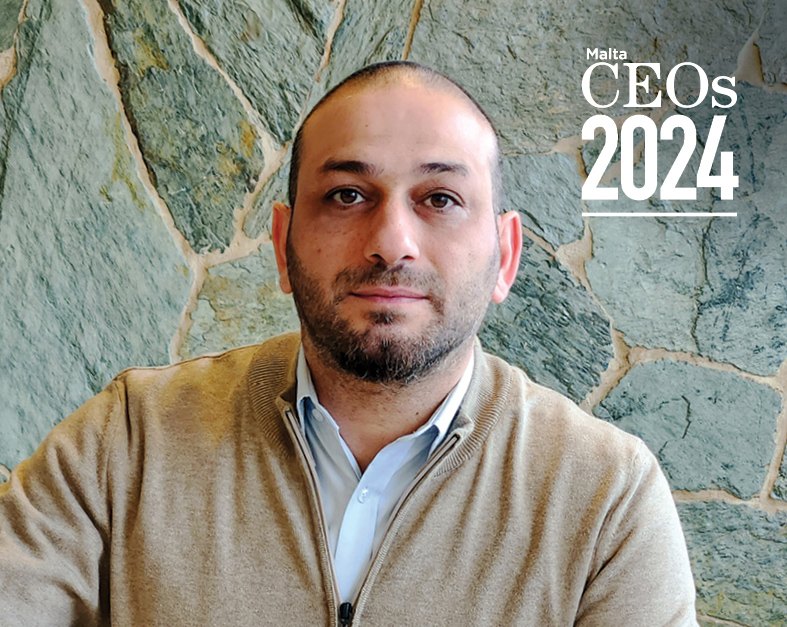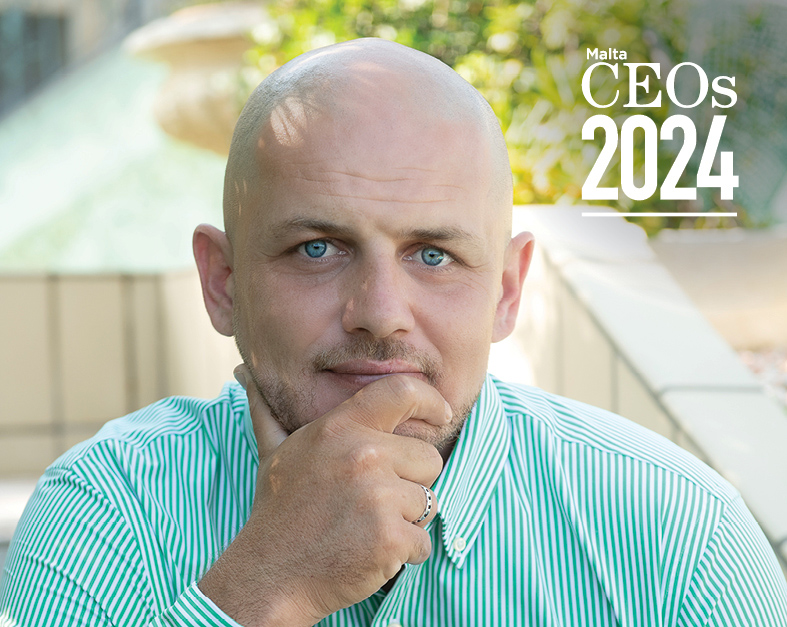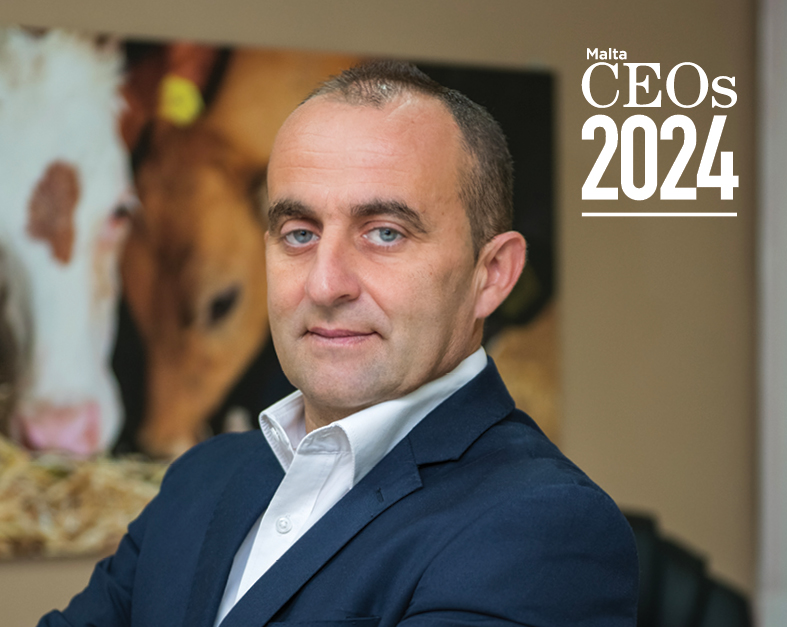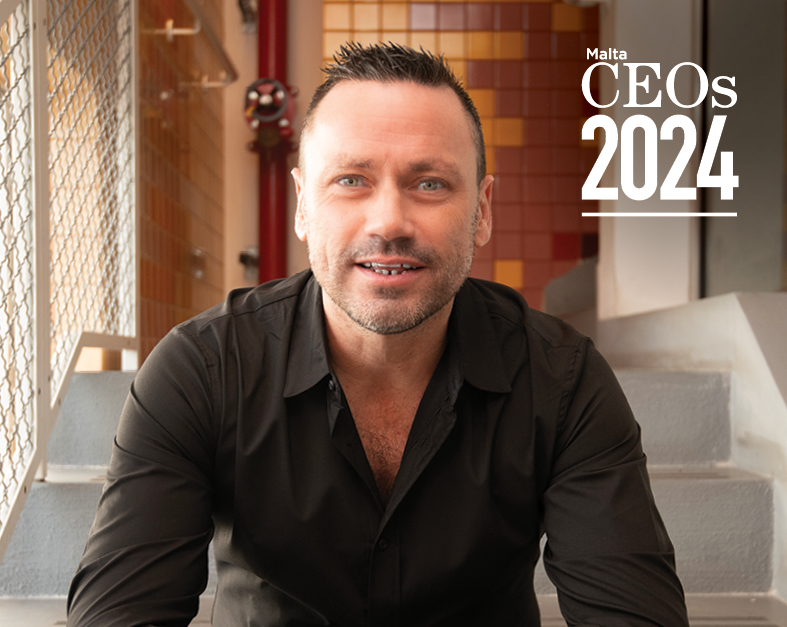Hailing from a pre-internet era of IT in the early 1990s – when owning a home computer was still a luxury – CyberSift CEO Brian Zarb Adami graduated in pharmacy and made his first foray into IT purely for leisure. As technology started to take hold, Brian actively participated in the rapid evolution of the cyber security space, going to found seven startups and launching CyberSift with business partner David Vassallo in 2017.
With cybercrime ever on the rise, CyberSift is positioning itself at the fore of the industry for 2024, helping businesses become cyber-proof.
Reflecting on his role as CEO of the company, Brian Zarb Adami compares his day-to-day job to “cheerleading various teams along”. He explains: “I try to push different individuals forward so we can reach our company goals – financial, quality or otherwise – and am always ready to fill any gaps or get my hands dirty if I need to.”
Landing in the position of CEO is a first for Brian, despite his extensive experience leading other companies. “I never really set out to be a leader or aspired to become CEO – I always followed my interests and started out as an IT hobbyist in the medical tech space before deciding to do something I was passionate about and switching over to IT full-time. In my previous roles, I was always the technical leader – never the business leader – but since David is ahead of me technically, he obviously fits that role better, so things just panned out the way they did as we grew our team organically and a structure started to emerge.

“This has been my first experience starting a company with the business hat on from day one, so I make it a point to use what I didn’t like in previous administrations as examples of what not to do. As a leader, you must remain a listener and remember that you don’t have anything over anyone who comes after you. You were just here first,” he asserts.
Brian adds that the company is constantly onboarding new people and roughly doubles in size every six-toeight months in an effort to continuously improve everything from business development to product strategy. “One fine day I’m sure I’m going to find a better CEO than me, and I suppose that will be my time to move on and do other things,” he muses pragmatically.
Opening up about the trials of his role, Brian says: “no leader will tell you that their job doesn’t bring daily challenges. There’s always an operational issue of some sort whenever you’re dealing with people. If it’s not a financial problem, it’s an HR one, and if it’s not that, it’s a client-facing issue. Ultimately, you have to be strategic and try to overcome obstacles as positively as possible.”
For Brian, delegation and managing people are the hardest parts of his job. He laments the pervasive Maltese mentality that ‘anything goes’, which clashes with his ethos of keeping on the straight and narrow, and striving for excellence. “I see this at all levels of our society and take it very much to heart that so many people are content to lower their standards to ‘just good enough’,” he remarks.

Brian has observed that this is a growing problem among some of the younger generations of the workforce who aren’t willing to go the extra mile and improve their performance. With an employee exclusively dedicated to HR retention, CyberSift has a highly rigorous selection process, only recruiting around one out of every 100 job applicants. “We have a core group of people who are excellent, but we still get a couple of outliers and lose five per cent of staff along the way when they realise they’re not up to it,” he shares.
Fortunately, there is much else on the job to keep Brian enthusiastic. “I enjoy the high-tech area we are in and get a kick when the team comes up with something new and exciting, or when customers are clearly happy with the way we handle an issue. I am also quite proud of the fact that we’re among only a handful of companies that are really doing anything about inventing locally innovative intellectual property, and have even been cited in international publications,” he smiles. Meanwhile, one of CyberSift’s biggest milestones to date – which Brian claims further strengthened its credibility and solidified its position in the market – was when GO plc invested in the company last March.
Now, with the rise of sophisticated hacks and malicious software, CyberSift has very much grown with the industry itself – from servicing users who have a statutory obligation to protect their clients’ information and assets, to catering to those who choose to have technical security controls in place even if not legally bound to.

Brian explains that the drive for setting CyberSift up was to build useful security tools that would be available to companies of any size, anywhere, and not just for the local market. “At the time, IT security only seemed to be within reach of larger corporations, not SMEs that didn’t have a budget of half a million to spend. We now know that cyber security is far from just for enterprise, as a simple home user could get hacked through social media, making it crucial for anyone to access,” Brian states.
In order to keep up with rapidly developing cyberattacks, CyberSift came up with a means of managing customers’ security without directly accessing their systems, which are hosted on customers’ premises, and opening them up to weaknesses. This is done via AI algorithms that CyberSift hosts and constantly updates.
Brian reveals that this is how the company got its name. “With tens of thousands of system alerts every day, which are impossible for humans to monitor, we use AI and apply machine learning to sift through all the security data, filter out any low-priority events and escalate critical cyber risks to our security team. This way, we’re able to give our clients meaningful information they can act on,” he explains.
Commenting on how the industry is developing, Brian observes that larger businesses are ramping up their cyber security for reasons of compliance in view of emerging regulations like DORA – the European-wide Digital Operational Resilience Act coming into effect in January 2025. DORA aims to safeguard the resilience of the digitised financial services industry and ensure the stability of financial systems in Europe. He notes, however, that many smaller organisations are still not investing in their cyber security, which is a risk as Brian believes there are bound to be more malicious events on the horizon. “Cyber attacks have now become a matter of when, not if, and I expect that more major attacks could make headlines this year,” he predicts.
For CyberSift, 2023 was a good year, with the company achieving its planned 50 per cent revenue growth and limiting its dependence on foreign technologies to just 35 per cent, proving it has come a long way since the early days of exclusively reselling third-party tools. Brian reveals that, this year, the company is looking to partner with distributors and plant its flag beyond the UK in Italy and Benelux, further cementing CyberSift’s position in Europe. “To my surprise, I’ve realised that, from a technical standpoint, we can go toe to toe with any of these players. In fact, I feel that we’re appreciated more abroad than in Malta, due to the lingering local mentality that ‘foreign is better’. We’ve even been told by banks in Belgium, Austria, the UAE, and the US that what we offer is better than the systems they have, which cost 10 times more,” he shares.
Brian predicts that the years ahead will hold opportunity for companies working to become specialists in one area as opposed to those attempting to expand and do too much, spreading themselves thin in the process. As for the local financial services industry, he muses that while there are many variables at play, this should remain relatively stable and enjoy small growth. Summing up CyberSift’s main drive for 2024, Brian optimistically concludes, “as we gear up to double in size, we know it will be another year of fire, but why not?”
This article is part of the serialisation of 50 interviews featured in MaltaCEOs 2024 – the sister brand to MaltaCEOs.mt and an annual high-end publication bringing together some of the country’s most influential business leaders
‘We have become known for our reliability, expertise & environmental responsibility’ – Director Mattheus Buyukkaya
Mattheus began his career in renewable energy as a junior, and progressed until he decided to launch his own renewable ...
‘My goal is to contribute to a greener future for generations to come’ – CEO Namik Kemal Ozden
Namik believes that you must always know who you are doing business with, whether that means visiting your suppliers, meeting ...
‘Going from being a farmer to becoming a CEO has been quite a journey’ – CEO Brian Vella
As leader of the Malta Food Agency, Brian asserts that consumers remain ‘extremely loyal’ to local produce.
‘Loyalty is important, not just as a measure of client loyalty, but as a tangible form of positive feedback’ – CEO Luke Todd
As a business leader, Luke favours smaller teams, allowing greater control of culture and unique selling propositions.


